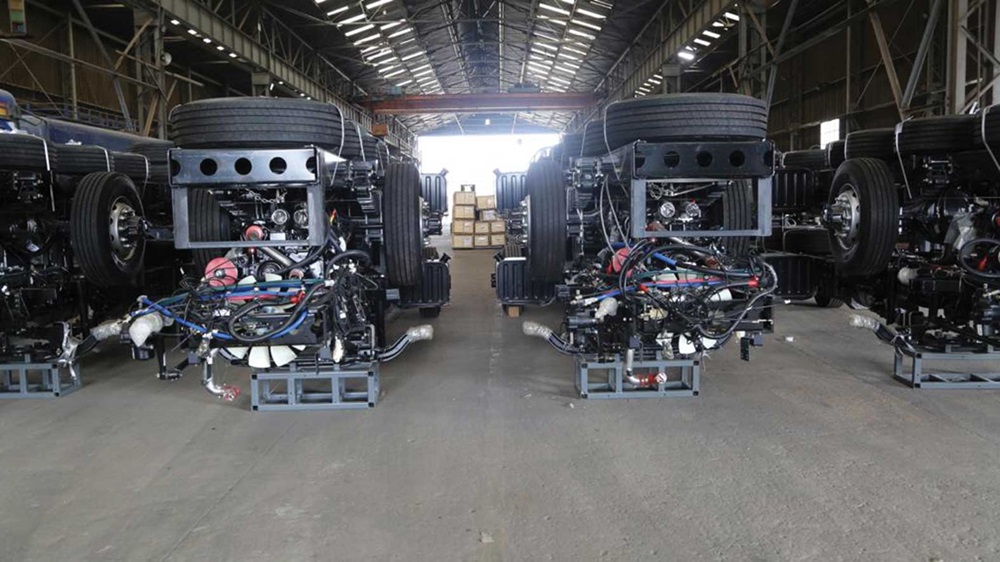The government has reaffirmed its commitment to supporting the recovery and growth of the local bus and truck industry.
This pledge comes in response to the industry’s struggles due to an influx of imports that are pushing locally manufactured buses and trucks out of the market.
In 2022, the government introduced Statutory Instrument 66 of 2022, permitting Zupco to import over 500 buses duty-free, and SI 138 of 2022, allowing individual companies to import 20 buses.
This practice contradicts the local content strategy, which promotes the use of locally sourced resources to stimulate industrial activity and create jobs.
Key players in the bus and truck industry, such as Deven Engineering, Amalgamated Bus Industries, Willowvale Motor Industries, AVM in Harare, and Quest Motor Corporation in Mutare, face unfair competition from foreign suppliers exploiting Zimbabwe’s open market.
AVM Africa aims to reduce the import bill for buses and delivery trucks by 44 percent by 2025 and increase direct employment in production from under 50 in 2020 to around 4,500 by 2025. AVM buses consist of 65 percent locally sourced materials and 35 percent imported components, including Completely Knocked Down (CKD) and Semi Knocked Down (SKD) assembly kits.
Also read: Understanding Gukurahundi: Essential Insights You Need to Know
A robust bus and truck manufacturing industry benefits upstream industries providing inputs such as bolts, batteries, steel sheets, tires, upholstery, paint, and carpet.
At a recent quarterly thematic working group workshop, Industry and Commerce Permanent Secretary Dr. Thomas Utete-Wushe emphasized the need for the government to prioritize local manufacturers over imports.
“We have an SI coming to support the truck and bus industry by reducing the age of imported buses and trucks. Some imported trucks are 30-40 years old, and buses are 15-20 years old, causing serious carnage. We are working to enhance the bus and truck value chain’s capacity,” he said.
Dr. Utete-Wushe stressed the importance of growing procurement of locally-made buses and trucks, particularly through government procurement, to stabilize the economy.
“We urge all accounting officers to purchase local products, instead of spending money on imports and creating jobs in other countries,” he said.
Bus and Truck Cluster Value Chain Chairman Mr. Patrick Munyaradzi highlighted the lack of local orders as a barrier to funding and urged the government to implement policies supporting local bus and truck assemblers. In 2022, the country imported 4,784 buses and 9,042 trucks.
Mr. Munyaradzi noted that the sector is not receiving government tenders for bus manufacturing, despite the goals of National Development Strategy 1 (NDS 1), which aims to increase the proportion of locally produced buses from 16 percent in 2020 to 60 percent in 2025, and delivery trucks from 4 percent in 2020 to 40 percent by 2025.
“NDS 1 also targets a 44 percent reduction in the import bill for buses and a 36 percent reduction for delivery trucks by 2025. However, we are seeing more imports than ever,” said Mr. Munyaradzi. “These imported units are paid for in foreign currency, and we need our government to prioritize local manufacturers in procurement.”
Industrial economist Sylocious Chaturuka, representing the Engineering, Iron and Steel Association of Zimbabwe, called for the government to promote the local content policy.
“We have companies producing iron, boards, and sheets used in bus manufacturing, yet we import entire buses. What message does this send to the local industry? Similarly, we import whole tractor components despite having the capacity to produce some locally,” he said.
For comments, Feedback and Opinions do get in touch with our editor on WhatsApp: +44 7949 297606

For comments, Feedback and Opinions do get in touch with our editor on WhatsApp: +44 7949 297606.
